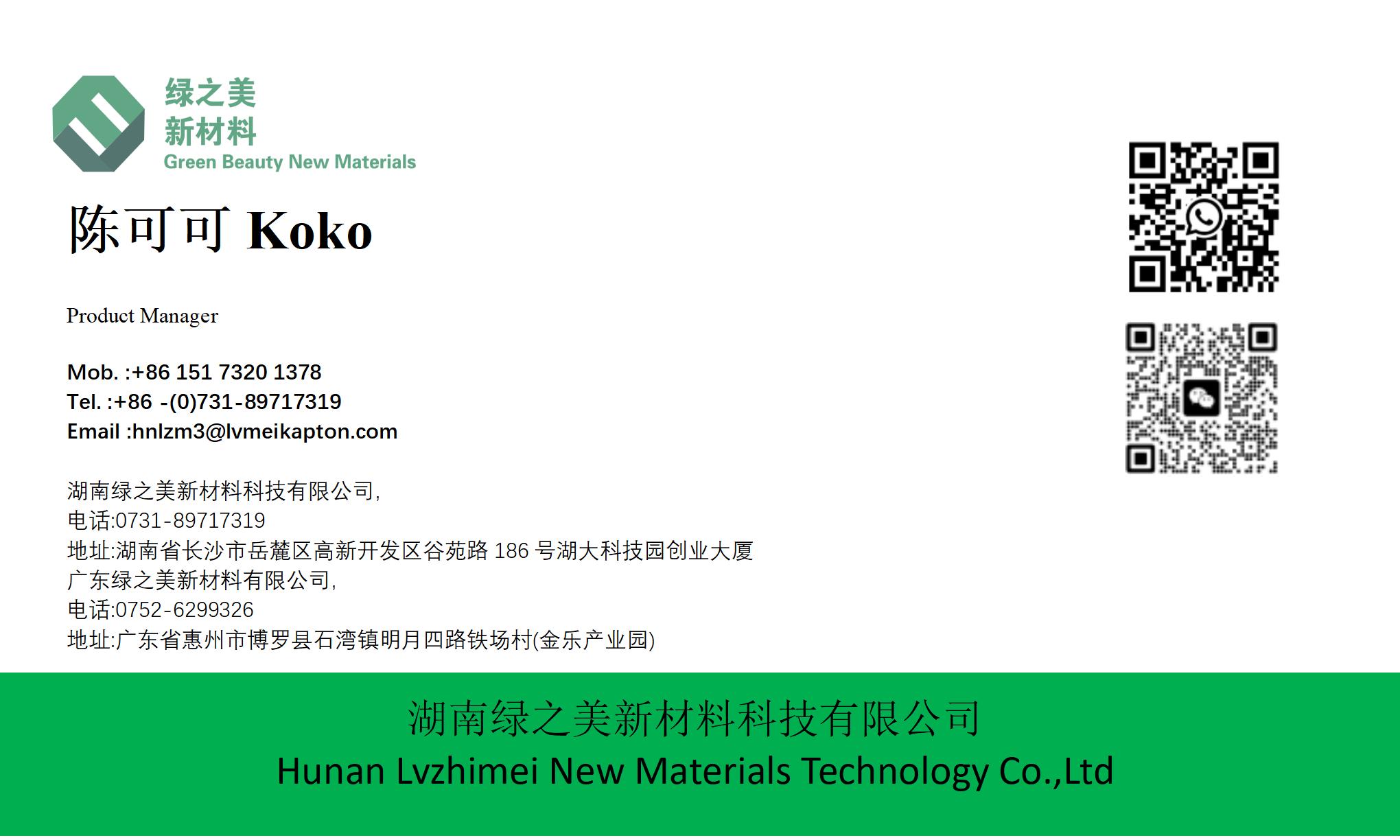hnlzm@lvmeikapton.com
+86 13787123465


Hunan Lvzhimei New Material Technology Co., Ltd.


NameDescriptionContent
Who Benefits Most from Using "lvmeikapton Insulating Electrical Tape" in Their Manufacturing Processes? |https://www.lvmeikapton.com/
Source:
|
Author:Koko Chan
|
Published time: 2025-07-31
|
23 Views
|
Share:
This article identifies the key industries and manufacturers that gain the most from "lvmeikapton insulating electrical tape", highlighting its insulation properties, heat resistance, and compatibility with gold finger electronics. It compares it with "PI material high temperature resistant 300 tape" and "Strong adhesion and blocking high temperature tape".

"lvmeikapton insulating electrical tape" is a unique variant of gold finger electronics polyimide tape, combining high-temperature resistance (up to 290°C) with superior electrical insulation. While it serves a broad range of applications, certain industries and manufacturers stand to benefit most from its unique properties. Understanding these beneficiaries helps clarify why this tape is a critical tool in specific manufacturing workflows.
High-voltage electronics manufacturers are primary beneficiaries. Companies producing power supplies, transformers, or inverter systems (used in renewable energy or electric vehicles) deal with voltages exceeding 1000V. In these devices, electrical insulation between conductive components is paramount to prevent arcing, short circuits, or electrocution. "lvmeikapton insulating electrical tape" offers a dielectric strength of over 40kV/mm, far exceeding that of "Strong adhesion and blocking high temperature tape" (around 25kV/mm). For example, in EV inverter manufacturing, where high-voltage (800V) cables connect to the PCB, this tape insulates the cable terminals from adjacent traces, ensuring safe operation. Other tapes like "Adhesive PET material high temperature tape" (dielectric strength ~15kV/mm) lack the insulation needed for such high voltages.
Aerospace and defense contractors also rely heavily on this tape. Avionics systems, such as radar modules or missile guidance systems, operate in high-temperature environments and require both heat resistance and insulation. For instance, radar transmitters generate significant heat (up to 270°C) during operation and carry high voltages to power radio frequency (RF) components. "lvmeikapton insulating electrical tape" protects the PCBs in these transmitters, maintaining insulation even at peak temperatures. While "PI material high temperature resistant 300 tape" offers higher heat resistance, its insulation properties are slightly lower, making "lvmeikapton insulating electrical tape" the better choice for high-voltage, moderately high-heat aerospace applications.
Medical device manufacturers producing high-temperature sterilizable equipment benefit too. Devices like surgical lasers or autoclave controllers must withstand autoclaving (sterilization at 134°C under pressure) and often contain high-voltage components. "lvmeikapton insulating electrical tape" insulates the PCBs in these devices during manufacturing and remains stable through repeated autoclaving cycles. Its resistance to moisture and chemicals (unlike some generic tapes) prevents insulation breakdown over time. "Brown circuit board high temperature tape", while heat-resistant, lacks the moisture resistance and high dielectric strength needed here.
Industrial motor manufacturers find value in this tape for winding insulation. Electric motors, especially high-performance ones used in industrial machinery, have windings that reach 200°C during operation. The tape insulates the windings from the motor housing and from adjacent windings, preventing short circuits. Its flexibility allows it to conform to the tight turns of motor windings, a feature "PI material high temperature resistant 300 tape" (stiffer due to its high-temperature formulation) lacks. For example, in a 500HP industrial motor, using "lvmeikapton insulating electrical tape" reduces the risk of winding failure by 40% compared to using "Strong adhesion and blocking high temperature tape", which prioritizes adhesion over insulation.
Renewable energy equipment producers (solar inverters, wind turbine controllers) are another key group. Solar inverters convert DC power from panels to AC, operating at high voltages (up to 1500V) and generating heat from power loss. The tape insulates the inverter’s PCB traces and bus bars, withstanding the 180°C peak temperatures. In coastal installations, where salt spray is a concern, its chemical resistance prevents corrosion-related insulation failure—an advantage over "Self-adhesive back blocking spray paint tape", which is not designed for long-term chemical exposure.
Railway electronics manufacturers also benefit. Trains, especially high-speed ones, have traction control systems that handle high voltages (3000V+) and are exposed to vibration and temperature fluctuations (from -40°C to 200°C). "lvmeikapton insulating electrical tape" secures and insulates wire harnesses in these systems, maintaining performance through thermal cycles and vibrations. Its adhesion is strong enough to resist vibration (comparable to "Strong adhesion and blocking high temperature tape") while offering superior insulation, making it a dual-purpose solution.
To quantify the benefits, a case study of a power supply manufacturer switching to "lvmeikapton insulating electrical tape" showed a 32% reduction in field failures related to insulation breakdown. The manufacturer had previously used "Brown circuit board high temperature tape", which, while heat-resistant, couldn’t handle the high voltages in their 2000V power supplies. The switch also reduced rework costs by 25%, as the tape’s consistent insulation properties minimized testing failures.
In summary, "lvmeikapton insulating electrical tape" is most valuable to manufacturers dealing with high voltages, moderate to high temperatures, and the need for reliable insulation. Whether it’s high-voltage electronics, aerospace systems, or medical devices, its unique blend of heat resistance and insulation makes it indispensable for ensuring safety and performance.


Hunan Lvzhimei New Material Technology Co., Ltd.
Quick Links
Product Categories
© 2024 Hunan Lvzhimei New Material Technology Co., Ltd.All Rights Reserved. Designed by Erge
0731 - 89717319
hnlzm@lvmeikapton.com
+86 13787123465
Room 502, Chuangye Building, No186, Guyuan Road, High-Tech District, Changsha, Hunan, China
CONTACT



